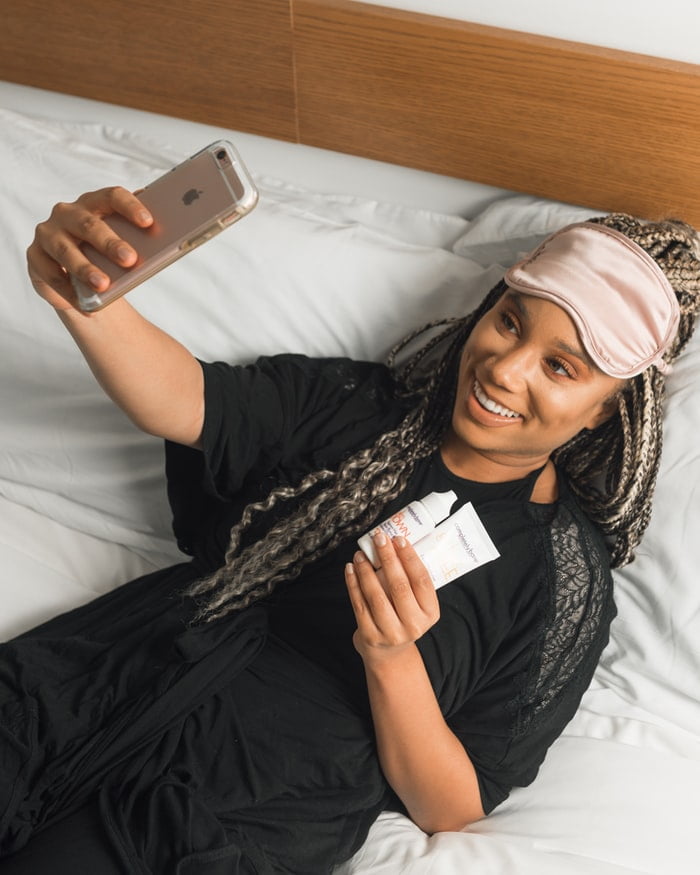The human body is a miraculous machine, engineered with awesome and finely-tuned systems that support us in living healthy, balanced lives. Each of us is carried silently by these innate, guiding forces that help us navigate our individual experiences. One of the most basic, yet fascinating, systems is something known as our biological clock. We can think of this clock as an intrinsic timing device-- fundamental to the functioning , organization, and coordination of our everyday behavior. Essentially, it regulates our body’s processes, keeping everything running on a consistent schedule.
Our Biological Clock
Our biological clocks drive one of of our most basic daily rhythms-- a sleep-wake cycle called our Circadian Rhythm that produces physical, mental, and behavioral changes in response to the sun. It’s designed to keep us tethered to it’s rising and setting, awake and alert by day and tired as we move toward the evening hours. As the light fades, day turning to night, our brains release a hormone called melatonin that signal it to begin to power down and prepare for sleep. As the light returns, after a period of rest, we wake to greet the day with a sense of renewal.
When our bodies are exposed to artificial light in the evening, it can be confusing to the human brain and interfere with this system. Blue light, in particular--the type of light emitted from smartphones, tablets, and LED screens--can be a major disruptor in this natural sleep-wake cycle because it cues the body to react as it would to the rising sun. The light the eyes receive, from these devices, signals the pineal gland in the brain to suppress the production of melatonin, which typically makes us feel sleepy. Instead, at a time when nature intends relaxation and recovery, we feel stimulated and restless.

How Does Blue Light Affect Sleep?
Blue light not only delays the moment of falling asleep, to varying degrees, but it also reduces REM and shifts the circadian clock so that people wake up later. Overtime, this change in our regular rhythm, which governs the healthy release of hormones, eating habits, digestion, body temperature, and other important bodily functions, can cause even more complex health issues. According to The National Institute of General Medical Sciences, irregular circadian rhythms have been linked to, not only sleep disorders, but other various chronic health conditions, such as obesity, diabetes, depression, bipolar disorder, and seasonal affective disorder.
By eliminating our exposure to blue light in the evening hours, we take conscious action to regulate this important bodily system--and, in doing so, take more responsibility in maintaining our health. The most effective way to do so is by imposing a “digital curfew” in your home. By avoiding any exposure an hour or two before bedtime, you allow the body to internally prepare, by producing melatonin and avoiding stimulation, for a good night’s sleep.

Limit Your Smartphone Usage
This can be a hard habit to break, especially for those of us accustomed to being constantly plugged in and turned on. Most of us can relate to having our smartphones within arms reach, as we settle into our beds, especially if you use it as an alarm clock. One simple alert of a new email, text, or social media post, and, the next thing you know, you’re mindlessly scrolling. Each of these prompts releases dopamine, a “feel-good” chemical messenger in the brain. It’s acts very similar to any other addiction, so it can be nearly impossible to resist the urge to pick up our devices. Therefore, a great place to start is by removing smart phones and all other devices from the bedroom.
If you’re not ready to give up your devices at bedtime, just yet-- or if work on the computer in the evening hours-- there are several other alternatives to decrease your blue light exposure in the evening. The first is to simply dim the screen or use a screen filter that can be attached to your device, to limit both blue and UV light. These are the easiest, yet least effective, of your options.

Blue Light Filter
Alternatively, there are new apps available that automatically change the color tones on your screen from blue to warmer ones like yellow, orange, and red. These tones, similar to a sunset, cue the body for rest. Many devices have a built in function that allows you to automatically alter the colors of the screen to the warmer end of the color spectrum at. If you go to Settings > Display & Brightness you can often change it yourself. While these apps and features are not capable of removing all blue light emitted from our devices, and can cause increased eye strain from the lack of contrast and image distortion, they do offer a partial solution.
Another option, which can be used alone or along with other light-filtering solutions, are blue light glasses. Just like the apps and screen filters, these glasses are also designed to adjust our exposure to harmful wavelengths emitted from smartphones, tablets, and computers. They’re believed to be a comprehensive solution that prevents excessive eye strain, as well as sleep-related problems. They come in many styles and various sizes, for all ages.
If you’ve been experiencing any sleep disturbance, and are like many others who are staring at screens more than ever, give some consideration to these blue light reducers. You might find that one or more of these “small fixes” offer huge rewards. There is no denying that we live in a world where Instagram rabbit-holes, Netflix binges, and long hours behind a computer are a real, not-so-unusual, thing. Awareness is the key to offering ourselves support for an easier ride.
We’d love to hear your thoughts. Have you ever considered your blue light exposure? Have you ever tried one of these filters? If so, did you notice any difference in your sleep patterns or energy levels upon rising?



















